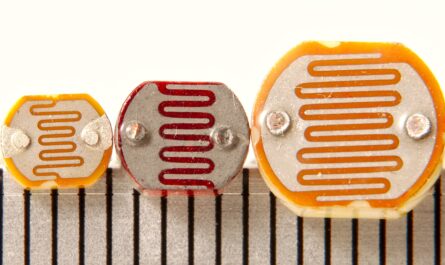However, the cost of official Arduino boards has led to the rise of cheaper Arduino compatible boards from various manufacturers. These clones are making microcontrollers and physical computing accessible to more hobbyists and developers. Let’s take a look at some of the most popular Arduino compatible boards in the market today.
ESP32 and ESP8266 Boards
One of the most common Arduino alternatives are boards based on the ESP32 and ESP8266 WiFi microcontrollers from Espressif. These tiny yet powerful chips can access WiFi networks and have integrated Bluetooth and BLE connectivity. Boards like the NodeMCU, Wemos D1 Mini, and ESP32-based DEV boards offer an Arduino-like development experience at a fraction of the cost. With onboard WiFi and Bluetooth, ESP32 and ESP8266 boards enable many wireless projects right out of the box.
The affordability and wireless capabilities of ESP boards have made them incredibly popular. Millions of hobbyists and developers have used them for IoT projects. Some key advantages of ESP boards include low cost starting from $2-5, built-in WiFi/BT, large community support, and small form factor. However, they don’t provide the expandability and analog inputs of Arduino. Their processor is also not as powerful as some other 32-bit MCUs.
STM32 Boards
Another popular class of Arduino Compatible alternatives are STM32-based boards from various manufacturers. The STM32 microcontrollers from STMicroelectronics offer powerful ARM Cortex processors, ample flash memory and RAM at low costs. Example boards include the generic Blue Pill board, Adafruit’s FEATHER series and other OSHW boards.
STM32 boards deliver much better performance compared to 8-bit AVR microcontrollers used in Arduino boards. The additional memory and speed capabilities of 32-bit STM32 allow for more complex projects. However, their software ecosystem is not as refined as Arduino’s. Developers need moderate C/C++ skills to code for STM32 unlike Arduino’s simplified environment. But the raw power and flexibility of STM32 make it an excellent platform for advanced applications.
Raspberry Pi Pico and Other Microcontroller Boards
The Raspberry Pi Foundation recently released the $4 Raspberry Pi Pico board centered around the RP2040 microcontroller. It provides all the basics of Arduino along with additional perks like dual-core processor, plenty of GPIO pins, and USB connectivity. Being an official Raspberry Pi product guarantees long term support.
Similarly, other boards like Micro:bit from BBC, Adafruit’s Circuit Playground Express and Pimoroni’s Picotium offer Arduino-like microcontrollers focused on education. Their kid-friendly designs and coding environments aim to introduce even young students to physical computing. These boards extend the educational impact of platforms like Arduino to newer demographics.
SAMD21/SAMD51 Boards
Arduino boards using Microchip’s SAMD21 and SAMD51 ARM Cortex-M0+ microcontrollers have become very popular alternatives too. Examples include the Arduino M0/M0 Pro, Adafruit Metro M0/M4 Express, SparkFun Pro Micro etc.
Compared to AVR-based boards, SAMD21 boards offer higher speeds, more flash/RAM and onboard USB support. Like STM32, the SAMD21 is 32-bit but with a simplified programming model similar to 8-bit AVRs. This makes for a smooth transition for Arduino developers. These low cost yet powerful boards have enabled many portable electronics projects.
NXP i.MX RT Microcontrollers
For applications requiring more horsepower, NXP Semiconductor’s i.MX RT series offers Arduino compatible developer boards. The i.MX RT1020 sits at the heart of boards like the MimxRT1050-EVK and provides an ARM Cortex-M7 core with floating point unit, ample RAM/flash and connectivity options.
The i.MX RT delivers ten times more processing power than a typical 32-bit MCU while staying very affordable. It finds applications in robotics, industrial automation, advanced IoT and more. NXP provides excellent documentation and free toolchains to code for these boards similar to Arduino.
The proliferation of lower cost yet capable Arduino compatible boards has opened up affordable prototyping and development to worldwide audience of builders and makers. While Arduino still offers the best integrated software platform, other boards provide competitive alternatives in terms of raw specs, features and price points. Going forward, there will only be more such boards pushing the boundaries of what’s possible at low budgets. The open ecosystem of Arduino clones will continue fueling innovation across various domains of physical computing.
Note:
1. Source: Coherent Market Insights, Public sources, Desk research
2. We have leveraged AI tools to mine information and compile it




